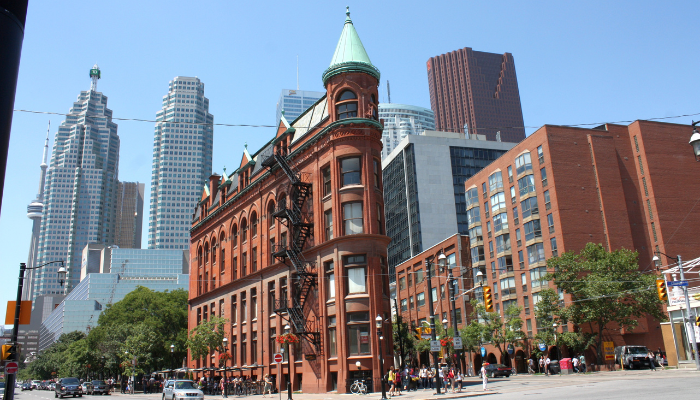Moving to a new place is always challenging and Canada is no exception. Here are some of the most common moving challenges you may experience when relocating within Canada: long distances, weather conditions, finding a new home, cultural differences and other issues…

Long Distances
Canada is a large country and moving cross country can be a challenge when it comes to the land area. Canada is the second-largest country in the world by land. Here are some of the challenges you may experience when moving cross country in Canada:
-
Higher Relocation Costs
The further you move, the higher money you will pay for moving. You may need to rent a moving truck or hire a moving company and these expenses can add up quickly when relocating long distance.
-
Longer Travel Times
Moving cross country within Canada can take a long time especially if you are driving. Depending on where you are moving from and to, you may need to spend several days on the road which can be tiring and stressful.
-
Potential Delays
Moving long distance also increases the risk of delays. You may experience busy traffic, road closures or weather-related issues that can slow down your move and potentially cause problems.
-
Shipping and Storage
If you are moving cross country, you may need to put your belongings in storage temporarily. This may add up your moving cost.
-
Climate
Canada’s climate can vary significantly depending on the region. Moving long distance may mean adapting to a new climate which can affect your lifestyle, clothing choices and overall well-being.
To overcome these challenges, it’s important to plan ahead and be prepared. Make sure to plan a budget for relocation and storage fees and consider hiring a reputable moving company to help you manage the process. With careful planning, you can minimize the difficulties of moving long distance within Canada and enjoy a successful relocation to your new home.

Weather conditions
Canada has a diverse climate with extreme weather conditions in some regions. Depending on where you are moving to, you may need to deal with snowstorms, heavy rain, or extreme heat. This can affect the shipping of your belongings and potentially delay your move.
Weather condition is an important consideration when planning a move within Canada. Here is what you can consider regarding weather conditions when planning to move in Canada:
- Winter Conditions: Canada’s winters can be long and harsh, especially in certain regions like the prairies or northern Canada. Snowstorms, icy roads, and extreme cold temperatures can make it challenging to move during the winter months.
- Spring Flooding: Spring can bring heavy rain and melting snow, which can lead to flooding in some areas. This can make it difficult to move, especially if you need to navigate through flooded roads or deal with water damage to your belongings.
- Summer Heatwaves: During the summer months, some regions of Canada can experience hot and humid weather conditions. This can be uncomfortable for moving, especially if you need to do any heavy lifting or exertion in the heat.
- Fall Weather: Fall is a popular time for moving, as the weather is typically milder and more pleasant. However, some regions of Canada can experience early snowfalls or colder temperatures which can complicate your move.
- Coastal Storms: If you are moving to a coastal region, you may need to deal with severe weather conditions like hurricanes, tropical storms, or heavy rainstorms.
It’s important to check the weather condition in the region you are moving to and plan accordingly. Consider the time of the year, prepare for potential weather-related delays and make sure you have appropriate clothing and equipment to deal with the climate. Hiring a professional moving company with experience of moving in different weather conditions can also help you to manage the challenges of a relocation in Canada’s diverse climate.
Finding a new home
Finding a new home in Canada can be challenging especially in popular cities where housing is in high demand. You may need to deal with high rental or housing costs, limited availability and competition from other renters or buyers.
Assuming a family of four moving from Toronto, Ontario to Vancouver, British Columbia, a distance of approximately 4,400 km, the estimated cost of a professional moving company may be around $5,000 to $10,000.

Read more: FAQ
This estimate includes the cost of packing materials, loading and unloading and transportation.
Additional expenses to consider may include:
- Storage
If you need to store your belongings temporarily, you may need to pay storage fee and this varies from moving company to moving company.
- Packing Materials
If you choose to pack your belongings yourself, you will need to purchase packing materials such as boxes, tape and bubble wrap. The cost of packing materials can range from $100 to $500 or more, depending on the size and the number of items you need to pack.
- Insurance
Moving companies offer various types of insurance, and you may want to consider purchasing additional coverage to protect your belongings during the move. The cost of insurance can vary depending on the value of your items and the type of coverage you choose.
- Travel and Accommodation
If you are relocating long distance, you may need to plan a budget for travel and accommodation expenses. This could include the cost of gas, meals and lodging during your trip.
It’s important to note that these are just estimates and actual cost may vary depending on your specific situation. To get an accurate estimate, it’s best to obtain quotes from several professional moving companies.
Cultural Differences
Canada is a multicultural country and each province and territory has its own unique culture and way of life.
Here are some examples of regions in Canada with different cultural features:
Quebec: Quebec is a province with a distinct French-Canadian culture. The French language, cuisine and architecture are prevalent in Quebec and the province has a rich history and tradition of music, arts and literature.
British Columbia: British Columbia is a province with a significant indigenous population and it is home to many cultures and traditions. The province is also known for its outdoor activities including skiing, hiking, and water sports.
Ontario: Ontario is Canada’s most popular province. This province is home to many different cultural communities including Italian, Chinese and South Asian. Toronto is Ontario’s largest city and it is one of the most multicultural cities in the world.
Atlantic Canada: The Atlantic provinces are Newfoundland and Labrador, Nova Scotia, New Brunswick, and Prince Edward Island. These provinces have a unique cultural identity with strong emphasis on the sea and fishing. The region is also known for its traditional music and cuisine including lobster and seafood.
Prairie Provinces: The Prairie Provinces are Manitoba, Saskatchewan and Alberta. These provinces have a strong agricultural tradition and many residents have a connection with the land. The region is also known for its cowboy culture and outdoor activities such as hiking and skiing.
Northern Canada: Northern Canada is home to many indigenous cultures and traditions including the Inuit and First Nations peoples. The region is known for its harsh climate and beautiful natural landscapes including the Aurora Borealis and Arctic tundra.

Paperwork and Legalities
Moving between provinces or territories in Canada may require you to complete additional paperwork, such as changing your address, updating your driver’s license or transferring your healthcare coverage. This can be time-consuming and potentially confusing.
Job Market
If you are moving to a new place without a job already lined up, finding a job in a new city might be difficult. You may need to spend time on networking, updating your resume and cover letter and attending job interviews.
Overall, moving within Canada can be challenging but with careful planning and preparation, you can minimize the difficulties and enjoy a successful relocation to your new home.


